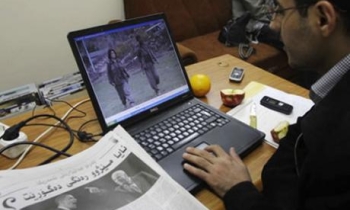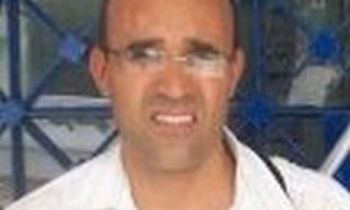More than 70 per cent of newspapers in the United States accept classified advertisements for all guns from unlicensed sellers � rifles, shotguns, and handguns. Less than 20 per cent newspapers do not take classified ads for guns from unlicensed sellers, according to a report by the Campaign to Close the Newspaper Loophole.
Between April-November 2005, the Campaign to Close the Newspaper Loophole surveyed most daily newspapers published in the US to determine each newspaper's firearms advertising policy. Of 1,449 newspapers surveyed, 1,030 newspapers (71 per cent) accept classified ads for all guns – rifles, shotguns, and handguns – from unlicensed sellers; 145 newspapers (10 per cent) accept classified ads for rifles and shotguns, but not handguns; and 274 newspapers (19 per cent) do not take classified ads for guns from unlicensed sellers.
Executive director of Iowans for the Prevention of Gun Violence and coordinator for the Campaign to Close the Newspaper Loophole, John Johnson, said "There is a demand for guns by persons who cannot buy them from licensed firearms dealers because they are either too young or have a criminal record and cannot pass the mandatory criminal background check required on all dealer sales.
"Thus, it is difficult to defend a newspaper's role in the private sale of firearms by unlicensed sellers without a background check. The potential risks to the general public (and the newspaper) from the unregulated sale of firearms through the classifieds far outweigh the benefits (revenues) generated by these ads."
The Campaign to Close the Newspaper Loophole urged newspapers across the US to restrict firearms advertisements to licensed firearms dealers only, and to not take classified ads for guns from unlicensed sellers.
Since the campaign was launched, 69 newspapers with a combined circulation of 7.9 million have changed their firearms advertising policy after being contacted by the campaign. Fifty-three newspapers changed their policy in 2005. A list of newspapers that have changed their policy is provided in the report and includes some of the nation's largest newspapers: Chicago Tribune, Philadelphia Inquirer, Miami Herald, Denver Post, Rocky Mountain News, Houston Chronicle, The Dallas Morning News, and The Indianapolis Star.
"We commend the publishers of these newspapers for taking reasonable steps to prevent their newspaper from being used as a marketplace for illegal gun purchases," said Johnson. "Although the classifieds represent only one segment of the unregulated secondary gun market, by changing its policy, a newspaper becomes part of the solution rather than part of the problem."
Unlike licensed firearms dealers, private individuals who sell guns through classified ads in newspapers are not required to conduct criminal background checks on their buyers or keep records of their transactions. Thus, the classifieds provide opportunities for felons, domestic abusers, minors and other persons who are prohibited by law from possessing firearms to evade a background check and unlawfully buy guns, according to the report.
The classifieds also provide a venue for gun traffickers to illegally "engage in the business" of dealing in firearms without a license to do so. Several anecdotes in which a prohibited purchaser bought a gun through a classified ad in a newspaper and then committed a crime with the gun, including murder, have been provided in the report.
The Campaign to Close the Newspaper Loophole is a project of Iowans for the Prevention of Gun Violence ( http://www.ipgv.org ).
A copy of the report "The Newspaper Classifieds - Marketplace for Illegal Gun Transfers" is posted online at http://www.gunloophole.com









